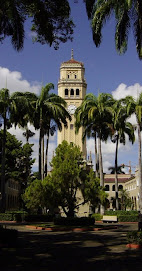Office of Special Education and Rehabilitative Services Overview Information; Personnel Development To Improve Services and Results for Children With Disabilities—Preparation of Leadership Personnel; Notice Inviting Applications for New Awards for Fiscal Year (FY) 2007.
Applications Available: August 11, 2006.
Deadline for Transmittal of Applications: October 10, 2006.
I. Funding Opportunity Description
Purpose of Program: The purposes of this program are to (1) help address State-identified needs for highly qualified personnel—in special education, related services, early intervention, and regular education—to work with infants or toddlers with disabilities, or children with disabilities; and (2) ensure that those personnel have the skills and knowledge—derived from practices that have been determined through research and experience to be successful—that are needed to serve those children.
Preparation of Leadership Personnel. This priority supports and is limited to projects that train personnel at the preservice doctoral or postdoctoral level in early intervention, special education or related services and at the advanced graduate level (masters and specialists) in special education administration supervision. In order to be eligible under this priority, programs must provide training and support for scholars to complete their training within the performance period of the grant. Therefore, only the following types of programs of study will meet the requirements of this priority:
1. A major in special education, related services or early intervention at the doctoral or post-doctoral level; and 2. Training at the advanced graduate level (masters and specialists programs) in special education administration/ supervision.
II. Award Information
Type of Award: Discretionary grants. Estimated Available Funds: The Administration has requested $90,626,000 for the Personnel Development to Improve Services and Results for Children with Disabilities program for FY 2007, of which we intend to use an estimated $4,800,000 for the Preparation of Leadership Personnel competition.
Estimated Range of Awards:
$171,969–$200,000.
